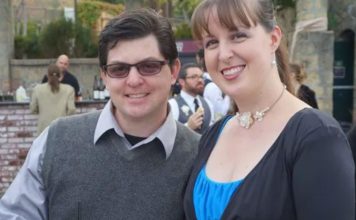And so the dice are thrown. With his popularity at its lowest
point since his election, Gov. Arnold Schwarzenegger gambled,
risking his political influence on a November 8 special election
that every poll says few Californians want.
And so the dice are thrown. With his popularity at its lowest point since his election, Gov. Arnold Schwarzenegger gambled, risking his political influence on a November 8 special election that every poll says few Californians want.
Equally significant, his timing assures the most expensive and bitter ballot initiative campaigns ever. This summer and fall promise to see a battle royale of the special interests, in large part pitting big business against labor unions. Yes, Schwarzenegger promises every day to fight special interests, all the while taking millions of dollars from developers, car dealers, chemical and oil companies, utilities and scores of others whose interests he can affect.
He’s almost doubled the money raised from companies and individuals seeking to influence state government by his ousted predecessor Gray Davis – and Davis was a legend among political fund-raisers.
What do donor companies like ChevronTexaco, Ameriquest Mortgage, Target Stores, Toyota, Anheuser Busch, Nestle, Wal-Mart, PG&E and the Irvine Company have to gain from the propositions Schwarzenegger put on this ballot?
Making teachers work longer to get tenure won’t affect any of them directly. Neither will taking the power to draw legislative and congressional districts away from lawmakers. Nor would they be impacted by the governor’s proposal to freeze government spending anytime lawmakers don’t pass a budget by the legal deadline.
But these companies are often affected by other Schwarzenegger decisions, like whether and where to place liquefied natural gas terminals, land use and electric policy and expanded lemon laws for new and used cars.
The big donors, then, want to be sure they are heard by Schwarzenegger on a wide variety of his decisions. At the very least, their money has bought them face time.
Meanwhile, the outfits Schwarzenegger styles as special interests – unions of teachers, nurses, firemen, policemen, prison guards and more – are making sure they won’t be outspent by the governor, who will raise and spend well over $50 million by November.
The California Association of Teachers last week raised dues for its 335,000 members by $60 per year for the next three years, planning to use the additional $60.3 this will raise to fight the teacher tenure change and another initiative limiting political spending by public employee unions.
The California Correctional Peace Officers Association, the prison guards union, upped dues for its 31,000 members by $33 a month for the next 18 months. This should net $18 million for political spending, on top of whatever the well-heeled union already planned to spend.
The big bucks assure that a barrage of conflicting claims will hit voters all through the summer and fall. They may already be accustomed to that. For long before Schwarzenegger actually called the special election, he was engaged in a he said/she said style battle against teachers and others, an ongoing battle of vicious TV commercials.
As the conflicting ads aired, Schwarzenegger’s popularity plunged from over 70 percent in most polls to about 40 percent, even lower than Davis got just before the recall.
A special election will cost the state and its counties $80 million, the teacher ads claim, money better spent on books and crayons. Much less, responds Schwarzenegger, noting that many counties already had elections scheduled this fall.
Plus, there will be more millions worth of ads over another measure – not part of the Schwarzenegger agenda – compelling teenage girls seeking abortions to get permission from their parents or a judge. Supporters, of course, generally ignore the fact that the American Academy of Pediatrics has reported male relatives produce about one-third of teenage pregnancies – meaning some girls would have to ask permission to abort from the very men who violated them.
No one can be sure how much the special election will eventually cost everyone, but it surely will be well over $150 million when all the ads are paid for.
By calling the election, Schwarzenegger risks further alienating voters, many of whom realize he could achieve all the same goals in the next June’s regular election. Two public polls in late May showed voters opposing a special election by a 2-1 margin.
But Schwarzenegger often takes risks. And for sure, the special election he’s called is fraught with high risk for both the special interests funding him and those he’s fighting. The results could determine the political dynamic of this state for years to come, establishing who really can motivate the public to back their causes.













